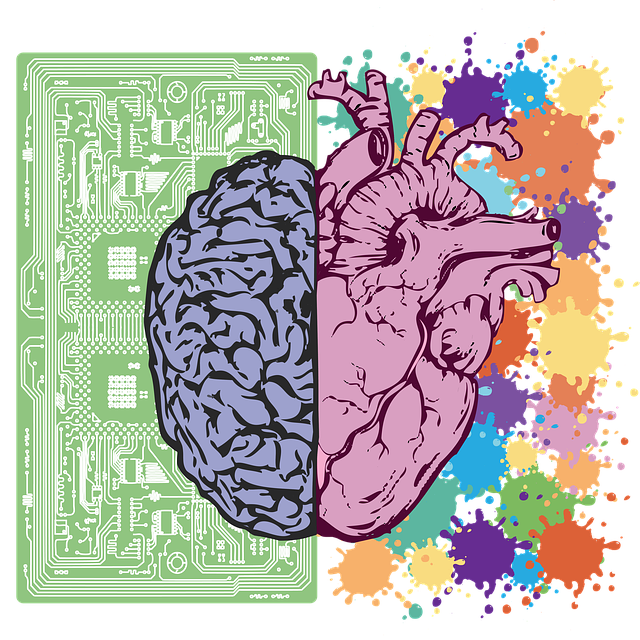Why is emotional intelligence important? It’s because whether in the boardroom or the living room, EQ is the unsung hero steering both personal satisfaction and professional achievements. It’s the skill set that allows for better stress management, deeper connections with others, better relationships, improved decision-making and a better ability to understand emotions. Dive into our exploration of EQ to understand how upgrading this powerful aspect of your life can lead to transformative outcomes, especially when considering the impact of mental health politics on our collective and individual well-being.
Addressing mental health politics requires comprehensive policies that prioritize accessible care, reduce stigma, and ensure equitable support for all individuals.
Table of Contents
ToggleKey Takeaways
- EQ is your feelings-friendly toolkit, doling out life hacks for self-awareness, handling emotions like a boss, connecting with others, and juggling relationships without dropping any balls.
- This emotional agility isn’t just for kicks—it’s the VIP pass to delicate conversations, a buffer against office drama, and your personal chill pill in a world that loves to crank up the stress-o-meter.
- Climb the EQ ladder with mindful self-regulation and empathy workouts, and watch your personal and professional life blossom like it’s on emotional steroids.
The Components of Emotional Intelligence: More Than Just Feelings
Emotional Intelligence (EQ) has become a cornerstone concept in understanding human behavior and success, largely due to the pioneering work of Daniel Goleman. Goleman’s groundbreaking book “Emotional Intelligence: Why It Can Matter More Than IQ” brought the concept of EQ to the forefront of popular discourse, emphasizing its importance in personal and professional realms. He highlighted how EQ encompasses a range of skills, including self-awareness, self-regulation, empathy, and social skills, which are crucial for navigating the complexities of human interactions and achieving success in various aspects of life.

Goleman’s research and advocacy have sparked widespread interest in emotional intelligence, leading to its integration into education, leadership development, and organizational management practices worldwide. Through his work, Goleman has not only shed light on the significance of EQ but also provided invaluable insights into how individuals can cultivate and leverage their emotional intelligence for personal growth and fulfillment.
The four core components of emotional intelligence are:
- Self-awareness: understanding your true feelings
- Self-management: effectively handling and regulating your emotions
- Social awareness: being attuned to the emotions and needs of others
- Relationship management: building and maintaining healthy relationships
It’s not just about how you manage emotions, but also how you navigate the emotional landscape of those around you. And the best part? Being emotionally intelligent is an ability that can be developed and improved, complementing your intelligence quotient (IQ) by predicting your ability to achieve success in life.
Why Emotional Intelligence Matters in Everyday Interactions
Emotional intelligence transcends being just a trendy term used in social settings. Its role is pivotal for navigating through the complexities of everyday conversations, helping us to manage difficult discussions and resolve disputes with finesse. It’s like having an invisible guide that guides you through the nuanced landscape of interpersonal communications, underscoring the importance of emotional intelligence so much. Indeed, the significance of being emotionally intelligent pervades multiple facets of our day-to-day lives.
Fostering Good Relationships
Building relationships that are strong and sturdy is no cakewalk; it’s like nurturing a delicate plant that needs constant care and attention.
Emotional intelligence can be that nurturing element that makes relationships bloom. Empathy, a key characteristic of an emotionally intelligent person, allows us to:
- Understand and share others’ emotions
- Connect on a deeper level
- Show compassion and support
- Build trust and rapport
Research suggests that these qualities lead to stronger interpersonal relationships, your ability to communicate effectively, and further, enhance your life-long achievements.

Active listening is another skill that is crucial for fostering effective relationships. It involves truly hearing and trying to understand others’ perspectives. Imagine being in a conversation where you feel heard, understood, and empathized with. How would that make you feel? Valued, right? That’s the power and importance of EQ in fostering good relationships.
Navigating Tough Conversations
Navigating the complexities of challenging discussions can be comparable to treading a delicate balance on a tightrope, where one wrong step might lead you down into a pit of miscommunication or dispute. Wielding emotional intelligence is like turning that precarious balancing act into an easy amble through the park.
Welcoming tough conversations and viewpoints that diverge from your own enhances empathic comprehension. It’s akin to seeing the world through another’s perspective, expanding your perspectives and equipping you with the ability to handle difficult exchanges with elegance and comprehension.
The Art of Conflict Management and Managing Your Own Emotions
Unexpected conflicts are like unexpected guests. They show up without warning. Just as a gracious host attends to their visitors, building emotional intelligence is the key to managing conflict effectively.
The ability to exercise strong self-regulation—one of the pillars of emotional intelligence—empowers people to be mindful about how they affect those around them and adjust accordingly when faced with change.
Emotionally intelligent leaders have several advantages.
- They can identify not only their own but also their team members’ triggers for emotions.
- They work proactively to prevent disagreements from becoming full-blown disputes.
- They leverage potential discord as catalysts for fostering growth and enhancing mutual understanding.
Possessing this strong sense of emotional intuition in navigating your internal world allows you essentially to carry a hidden arsenal that enables you to manage conflict effectively and navigate through the turbulent seas of human feelings: both positive and negative emotions.
The Influence of Emotional Intelligence on Mental and Physical Health
Emotional intelligence is not only crucial for managing emotions and navigating social scenarios, but it also enhances our mental and physical well-being. It acts as a powerful tool in diminishing stress, fostering overall wellness, and supplying the emotional vigor required for both motivation and maintaining an upbeat state of mind.

Developing emotional intelligence is important and could be considered the hidden ingredient that contributes to a more robust and joyous existence!
Managing Stress for Better Health
In today’s rapid-fire environment, stress often presents itself as an uninvited guest. Nevertheless, harnessing the power of emotional intelligence can be your covert weapon in tackling and practicing mindfulness to manage stress.
Cultivating emotional intelligence is important and provides people with essential tools for resilience and coping mechanisms that are vital to thriving amidst difficulties. Think of it as owning a custom toolkit designed specifically for busting through stressful encounters. A pivotal aspect of emotional intelligence is self-regulation, which involves adept management of emotions, proficiently dealing with disagreements, and maintaining flexibility. Armed with high EQ, you’re well-equipped to bid farewell to overwhelming stress!
Emotional Intelligence and Mental Well-being
Possessing EQ greatly contributes to stress management and boosts overall mental health. Emotionally intelligent people experience enhanced mood stabilization and improved control over their emotions, especially after going through adverse events. It acts as an internal mechanism for maintaining equilibrium.
Emotionally intelligent individuals display excellent mental health due to their strong emotional intelligence, equipping them with the skills necessary for effective stress management and resilience in stressful situations. Emotional intelligence serves as a guiding light in personal relationships, social complexities, and professional obstacles, lighting the way towards communicating effectively and life success.
Emotional Intelligence in Professional Development Makes for Effective Leaders
Incorporating emotional intelligence into your career is akin to weaving golden strands through a tapestry, enhancing its design and increasing its worth. Emotional intelligence serves as the clandestine component that not only elevates job performance and satisfaction, but also boosts personal well-being, thus being pivotal for achieving professional success.

Leadership and Emotional Intelligence in the Workplace
Leadership is not solely about formulating strategies, meeting objectives, or possessing technical prowess. It also requires the ability to forge emotional bonds with team members. Emotional intelligence — which encompasses empathy and advanced social skills — plays a vital role in effective leadership.
A deficit in emotional intelligence among leaders can result in diminished staff engagement and higher attrition rates. Conversely, leaders who cultivate strong emotional relationships with their teams are likely to see an uptick in job satisfaction and increased productivity among employees.
For current or aspiring leaders, honing your emotional intelligence is an indispensable skill that demands attention.
Team Dynamics and Collaboration
A group with high emotional intelligence operates like a finely tuned machine, where every component works seamlessly to ensure smooth functionality. Emotional intelligence is vital in forging trust and teamwork among members, significantly improving collective collaboration.
When team members have heightened emotional intelligence, they are more adept at navigating conflicts, understanding different viewpoints, and fostering constructive outcomes during group engagements. They shine in various scenarios from offering valuable criticism to settling disagreements or adjusting to change.
The Synergy Between Emotional Intelligence and Personal Development
Much like two peas in a pod, emotional intelligence and personal growth are deeply connected. The path to self-improvement is more manageable and fulfilling when you harness the power of emotional intelligence.

As you strive for self-enhancement and success, consider emotional intelligence an invaluable ally. Enhancing your emotional intelligence is crucial to fully leverage its benefits on this voyage.
Self-Improvement Through Emotional Skills
Improving yourself is comparable to scaling a mountain. It’s arduous, yet immensely satisfying. Emotional skills such as self-awareness and empathy act as essential gear on this ascent, aiding in the navigation through the rigorous paths of personal development.
Self-aware individuals gain from self-awareness by being able to “walk in someone else’s shoes”:
- Recognize emotions and figure out the key component that shapes them
- Acknowledge how your own mood and behaviors affect those around them
- Possess a reflective tool that reveals not only their outer appearance but also their inner emotional state.
Cultivating empathy towards others can enhance your emotional abilities over time. It equates to acquiring fluency in the language of emotions, which allows for better understanding of and reaction to other people’s feelings.
Achieving Success With Emotional Abilities
Achievement is not solely a result of dedication and luck. It encompasses emotional competencies. Possessing high emotional intelligence aids in:
- Flexibility
- Capacity to tackle challenges
- Stress regulation
- Maintaining calmness during tense situations
It acts as an exclusive passkey that opens the gateway to prosperity.
Emotional intelligence fuels transformation and advancement, which results in enhanced effectiveness and heightened spirits, inspiration, and collaboration towards realizing individual and collective aspirations. Thus, whether you aim to ascend professionally or accomplish personal ambitions, your journey towards triumph may be facilitated by your emotional aptitude in understanding emotions.
Practical Steps to Enhance Your Emotional Quotient
Exploring practical measures that bolster your emotional quotient is imperative after understanding the importance of emotional intelligence. This enhancement journey can be enriching, encompassing the growth of self-awareness, nurturing empathy, and practicing mindfulness.
Mindfulness and Self-Regulation
Practicing mindfulness and self-regulation are two integral aspects of emotional intelligence. They enable people to handle their emotions with greater proficiency, ensuring emotional equilibrium.

Individuals engaging in mindfulness practices can:
- Strengthen their ability to control emotional reactions by improving self-regulation
- Boost awareness of yourself
- Master the skill of managing emotions with more efficacy
This process is akin to adjusting your internal emotional volume, increasing consciousness about how you react emotionally and mastering those reactions.
Developing stronger self-regulatory abilities via exercises in emotional intelligence leads to growth on a personal level and enhances motivation. It’s comparable to arming yourself with a steering mechanism for traversing through the vast seascape of emotions.
Empathy in Action
Active empathy serves as a conduit between people, facilitating the mutual grasp and exchange of each other’s emotions. Emotional intelligence is characterized by the ability to recognize, comprehend, and take into account the emotional states and perspectives of others, incorporating an element of emotional understanding.
Engaging in practices such as role-playing or committing random acts of kindness can augment your empathy capabilities. This resembles putting yourself in another person’s situation to gain a more nuanced appreciation for their viewpoint, thereby deepening interpersonal bonds.
Emotional Intelligence: A Lifelong Journey
Emotional intelligence is a marathon, not a sprint—a continuous endeavor to comprehend and regulate both our own emotions and those of the people around us. Embark on this voyage with confidence. It promises to be highly rewarding.
Developing emotionally intelligent connections can enhance your emotional intelligence, akin to perfecting an art through persistent practice. Whether you are at the onset or have already made progress in this pursuit, bear in mind that each advancement in emotional intelligence moves you closer to personal fulfillment, professional achievement, improved relationships, and enhanced well-being overall.
High Emotional Intelligence Helps Open Doors For You
In our whirlwind journey, we’ve explored the multifaceted realm of emotional intelligence, its impact on our personal and professional lives, and its role in stress management, mental well-being, and personal development. We’ve also touched upon practical ways to enhance emotional intelligence. Remember, emotional intelligence is not a destination; it’s a journey of self-discovery, growth, and continuous learning.
Frequently Asked Questions
What is emotional intelligence?
The ability to comprehend and regulate emotions within yourself and in others, effectively channeling those feelings in a constructive direction, is known as emotional intelligence.
In essence, it equates to mastering the art of being an emotional ninja!
How does emotional intelligence affect relationships?
Improving empathy and active listening, which are facets of high emotional intelligence, can strengthen relationships by fostering more meaningful connections with others.
How does emotional intelligence contribute to mental and physical health?
The enhancement of emotional intelligence can contribute to the reduction of stress, bolster your general state of well-being, and elevate levels of motivation as well as mood.
It represents a dual advantage for mental as well as physical health.
What role does emotional intelligence play in a professional setting?
In the workplace, possessing emotional intelligence can enhance work performance and individual well-being while also boosting job satisfaction, thereby marking it as a critical component for achieving professional success.
How can we develop emotional intelligence?
Boost your emotional intelligence through the cultivation of self-awareness, the application of mindfulness techniques, and the development of empathy.
Implementing these actionable strategies can significantly aid in gaining a deeper understanding of your emotions and mastering their management.



